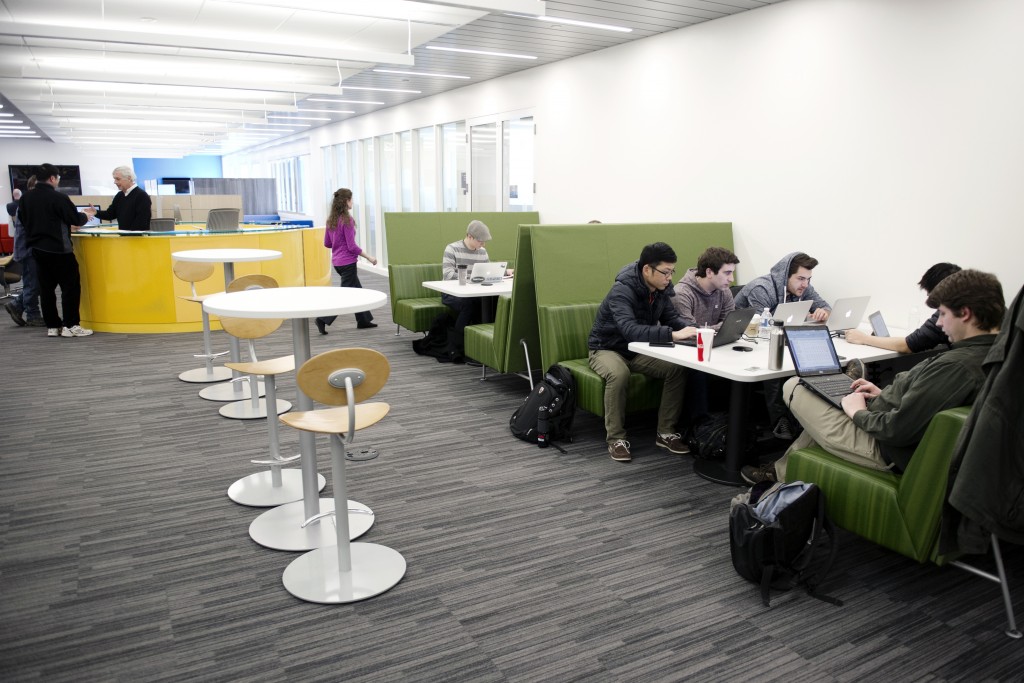As temperatures cool and students return to Boston, we at the Women Writers Project are looking forward to the fall semester while reflecting back on our first year at Northeastern. After many productive years at Brown University, the WWP came to Northeastern in July of 2013 and is now supported here as part of the Northeastern Library’s Digital Scholarship Group (DSG).
Among the most exciting aspects of the WWP’s first year at Northeastern has been the opportunity to collaborate with other DSG projects, many of which also work in the guidelines established by the Text Encoding Initiative (TEI). The strong TEI community at Northeastern has fostered partnerships between projects and enabled the DSG to bring together a group of graduate students with expertise in the TEI and digital scholarship. The DSG’s new space in the Digital Scholarship Commons has also led to exciting opportunities for formal and informal collaboration.
This summer, we were particularly pleased to coordinate several workshops for graduate students involved with the WWP and other DSG projects. The first set of seminars in July offered an introduction to the TEI and text encoding. In August, we organized a workshop series building on that introduction to give graduate students the tools they need to teach text encoding themselves. We are hoping that graduate students will bring their new skills and knowledge to the community of DSG projects at Northeastern, including the Early Caribbean Digital Archive, the Viral Texts Project, the TAPAS project, Digital Humanities Quarterly, and Our Marathon.
The WWP’s collaboration with other DSG projects includes a partnership with the Early Caribbean Digital Archive (ECDA), exploring the development of a TEI-aware version of the Bookworm data visualization software. The TEI-Bookworm system would bring together large-scale data mining, rich text markup, and data visualization tools to enable new modes of scholarly research into texts and cultures. For example, text analysis with TEI-Bookworm could take on questions such as: What caused the death of the epic and the rise of lyric poetry? and: What is the historical relation between the newspaper, the novel, and the rise of nationalism?
The WWP has also explored new research opportunities by submitting a grant proposal for a project examining the intertextual networks of women’s writing from 1450 to 1850. This project would gather data on the citation and quotation practices of texts in Women Writers Online (WWO), the WWP’s digital collection of texts by female authors. By collecting and publishing data on the quotations, texts, and authors referenced in WWO, the project would reveal changes in readership over time and show the cultural values attached to certain kinds of texts.
Looking forward to the fall, we are organizing a few exciting events, including a Dissertation Colloquium for graduate students planning research that will involve digital scholarship. We’re also coming together with other DSG projects to hold an open house event during Open Access Week in October, where we will share our work with the wider Northeastern community. Our first year at Northeastern has led to many productive collaborations and promising research opportunities and we are very excited to see what the new school year will bring!
The Women Writers Project (WWP) is a long-term research and publication project focusing on early women’s writing in English. The WWP publishes Women Writers Online, a collection rare and less familiar women’s texts, and researches the issues involved in digital representations of early printed texts.

